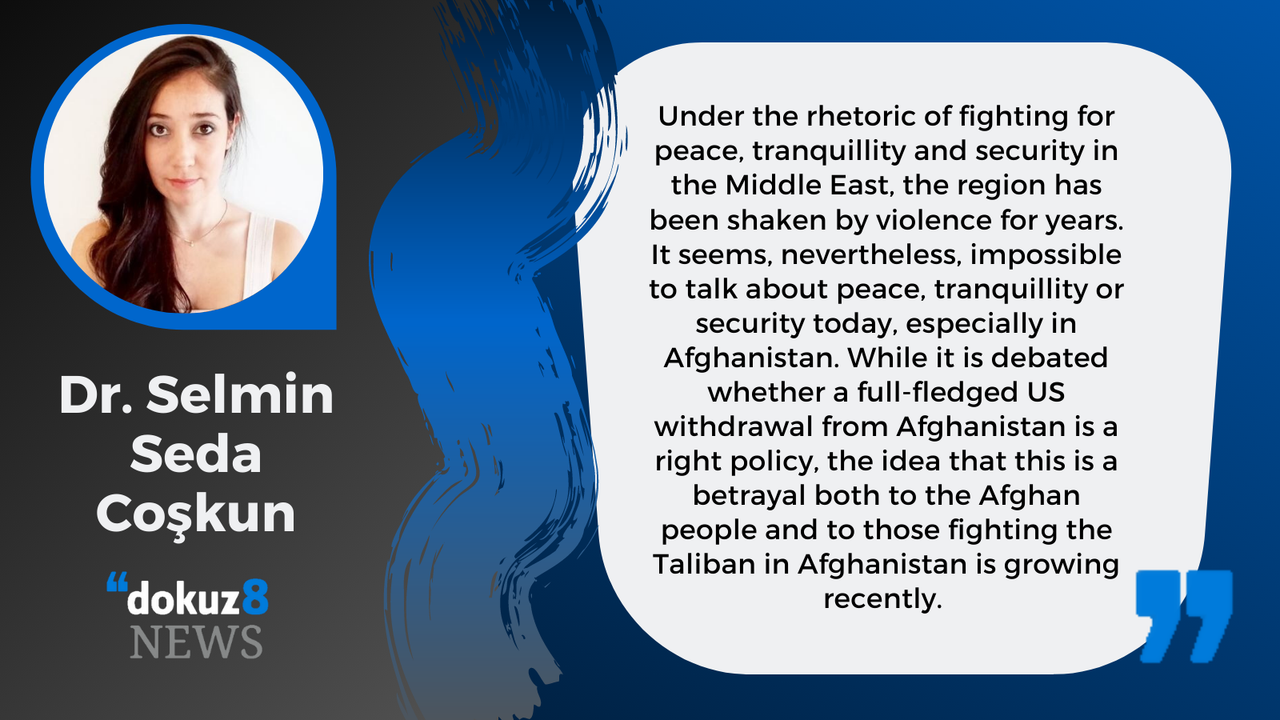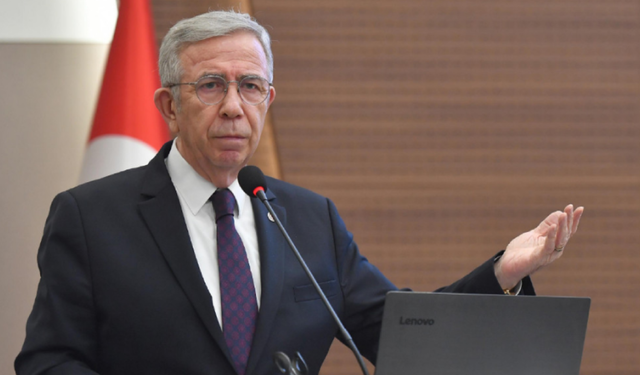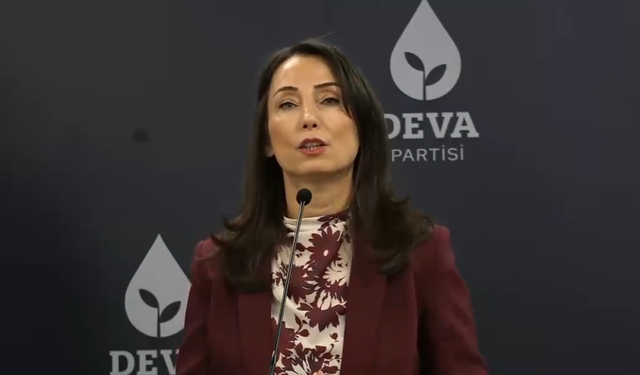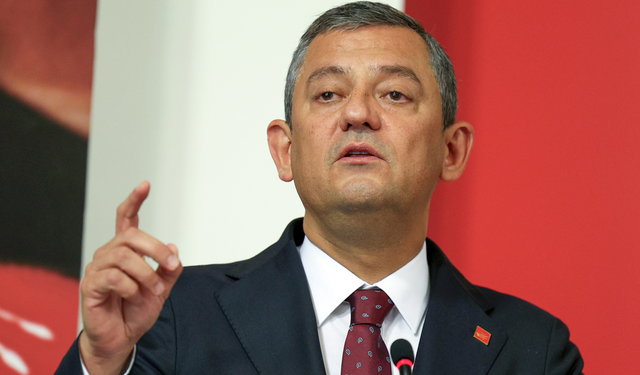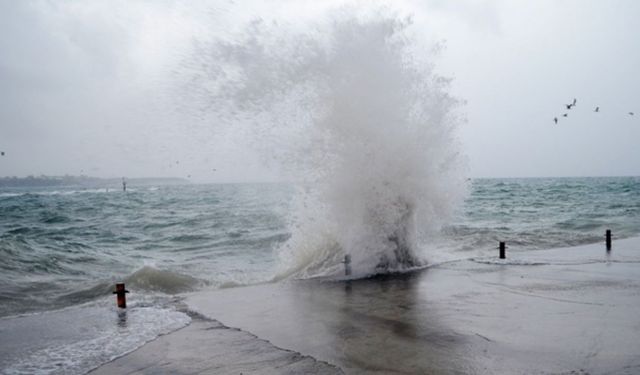Under the rhetoric of fighting for peace, tranquillity and security in the Middle East, the region has been shaken by violence for years. It seems, nevertheless, impossible to talk about peace, tranquillity or security today, especially in Afghanistan. While it is debated whether a full-fledged US withdrawal from Afghanistan is a right policy, the idea that this is a betrayal both to the Afghan people and to those fighting the Taliban in Afghanistan is growing recently.
However, it was quite clear. If we consider that the US lost the war in Afghanistan and left the country because it did not want to bear any more costs, we can see the fact that this loss was a sad adventure that covered the entire 20 years that the US soldiers were there, not the developments in the last one or two years. Afghanistan is a country that has not yet been able to build its own nation-state, manages inter-tribal struggles only with weapons, and resembles the Middle Ages in terms of human rights. The Afghan National Army, which was established by the USA, could not escape from being a community of people formed by various ethnic, sectarian and sect groups, and therefore it has been always far from national unity. The Afghan state system that the US tried to build was not a system that prioritized the people and could not go beyond the effort spent on the interests of the elites. However, US troops were the Afghan National Army's merely source of military, technical, and intelligence. The Afghan army's lack of resources, military skills and weak motivation to fight for whom and how has brought weakness against the Taliban today after the US made its decision to withdraw completely.
This is an indication that the US has not been able to manage the process well in the Afghanistan mission from the very beginning. The Taliban's takeover of power also dealt a major blow to the 'war on terror' rhetoric. The US withdrawal seems like a setback in the struggle between democracy and authoritarianism, so that the Western-style liberal interventionism model collapsed in Afghanistan. From now on, it seems difficult to support similar initiatives by the allies. However, does this not contradict Biden's rhetoric of "America is back" when he took office?
AMERICA IS BACK!
Member states, which lost confidence in NATO during the term of former US President Donald Trump and came to the point of questioning NATO's functionality, had realigned with the new President Joe Biden. At the NATO summit held last June, common threats were discussed again, and the belief that a tight working environment between the Allies would resume had been aroused. The phrase 'America is back' had become the most used expression in foreign policy. Now it is nothing but an ambiguous confusion of meaning. As a matter of fact, the withdrawal of the USA from Afghanistan as if to reward the Taliban has prompted the allied states to reconsider the direction of Washington's decisions.
According to the CIA reports, the Taliban's takeover activities could take place between 6 and 2 years after the full withdrawal of the USA from Afghanistan. The Taliban, however, increased its power in areas it had occupied through conflict while the United States had not yet withdrawn its troops and other foreign missions were still in the country. Finally, it entered Kabul as if receiving a key delivery. With the departure of the country's President Ashraf Ghani, the Taliban took over the seat of the new Afghan government. Now, watching the developments in Afghanistan with concern, the NATO allies realized that they had to think twice before they clearly understood what the USA wanted to do and without stopping behind the policies of President Joe Biden as an ally. The uninterrupted conversation traffic of European states reflected their anxiety over the rapid decline of Kabul.
REFLECTIONS FROM RUSSIA AND CHINA
Concern about the direction of the situation with the Taliban's takeover the power in Afghanistan seems important not only for the West but also for the US allies in the region. The US's rhetoric about withdrawing from the Middle East and focusing on Asia were making the powers acting with the US in the region worried for a while. After 20 years of struggle, the full withdrawal of the US from Afghanistan, as if rewarding the Taliban, will require a rethinking of the alliance groups in the Middle East. At this point, one of the most important factors concerning Turkey is the course of the relations of the non-state armed organization PYD-YPG, the extension of the PKK terrorist organization located in northern Syria, with the USA; the second will be Russian and even Chinese influence, which is very likely to increase in the region.
If international terrorism finds a place in Afghanistan with the new Taliban administration, this situation will concern the entire region, including Pakistan which supports Taliban, and even Russia and China. At first glance, Russia and China seem pleased with the US withdrawal. In particular, China may have the opportunity to influence Afghanistan and the region more with this move of the USA. However, the fact that those of the Muslim minorities in China who are against Beijing crossing the existing border into Afghanistan and collaborating with the Taliban may disturb China. Russia seems pleased as well that the US is now sharing the same fate in the lands where it was defeated during the Soviet period. However, the possible increase in instability and violence in the region may result in spillovers to neighboring countries. This is a worrying situation for Russia. That is why China and Russia seek to establish close relations with the Taliban today.
HIGH FORESIGHT OF AMERICA!
It seems that while the Taliban was a non-state armed organization, today it is a candidate to enter the international community as an actor. Besides Russia and China, Turkey will also recognize the Taliban as the official government of Afghanistan. Even the United States left, saying that channels of dialogue with the Taliban were open. European states are giving signals to take a similar stance, as well. Against the Taliban who said, "There will never be a democratic system in Afghanistan,”, there seems to be an understanding that the quest to cut ties with Afghanistan and isolate the Taliban will only bring more chaos.
What exactly does the US want to do? 20 years of struggle, billions of dollars spent, many soldiers sent, thousands of casualties… Giving Kabul to the Taliban as if they were handing the key without firing a single bullet must be due to the US's high foresight about what will happen next (!). Could this foresight be to use the country's resources against the rising China instead of wasting it in other lands?
Dr. Selmin Seda Coşkun
